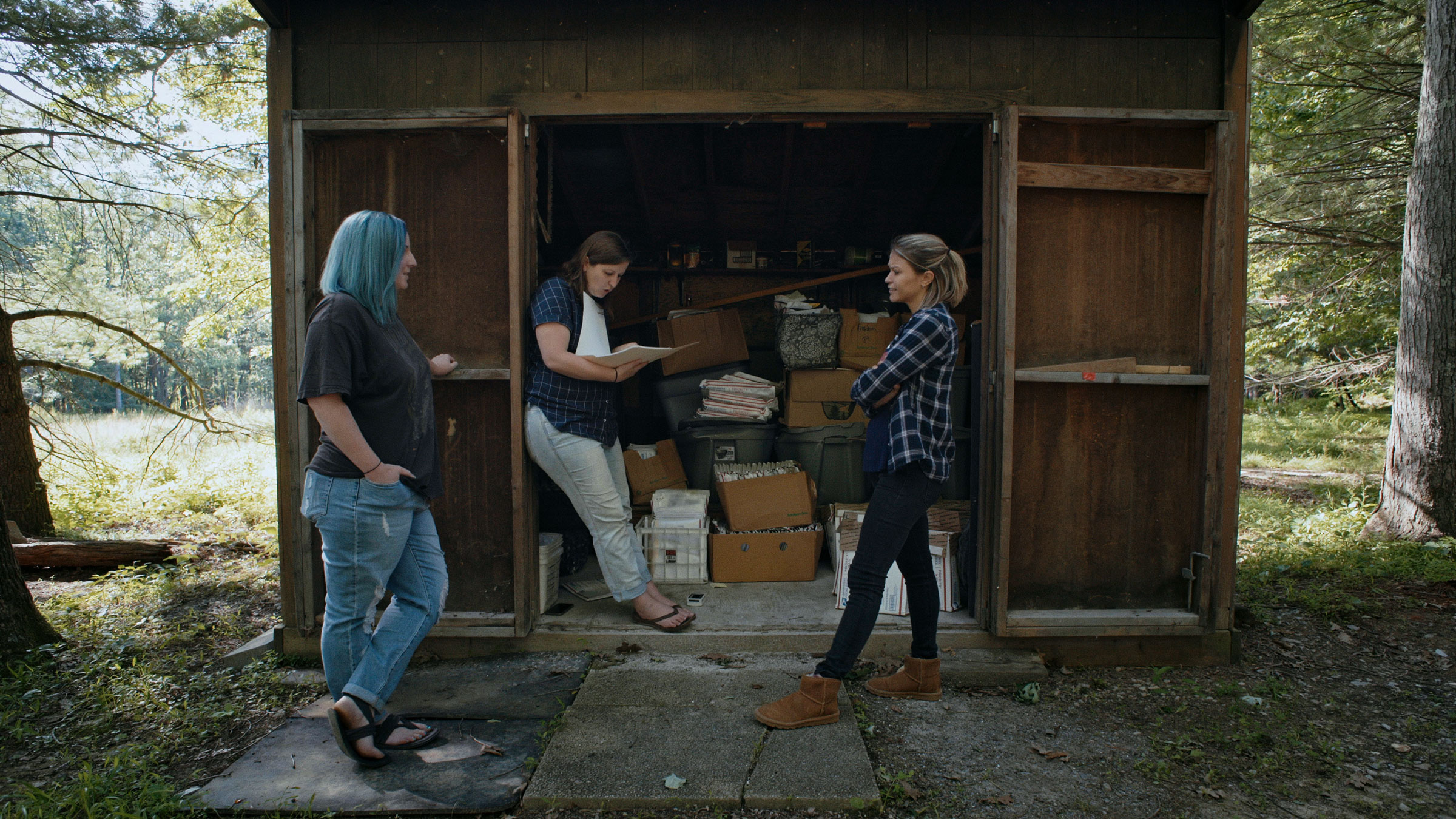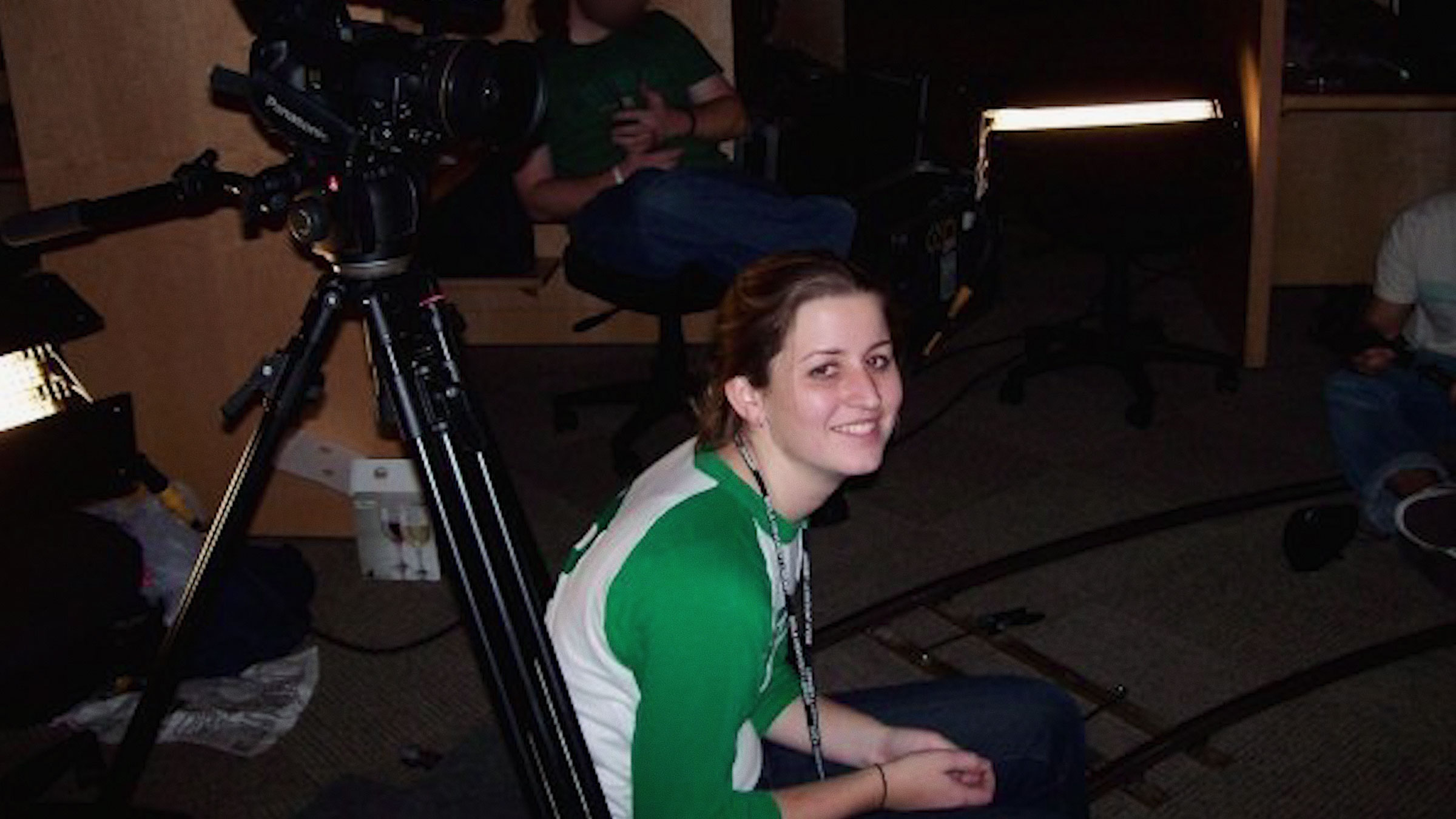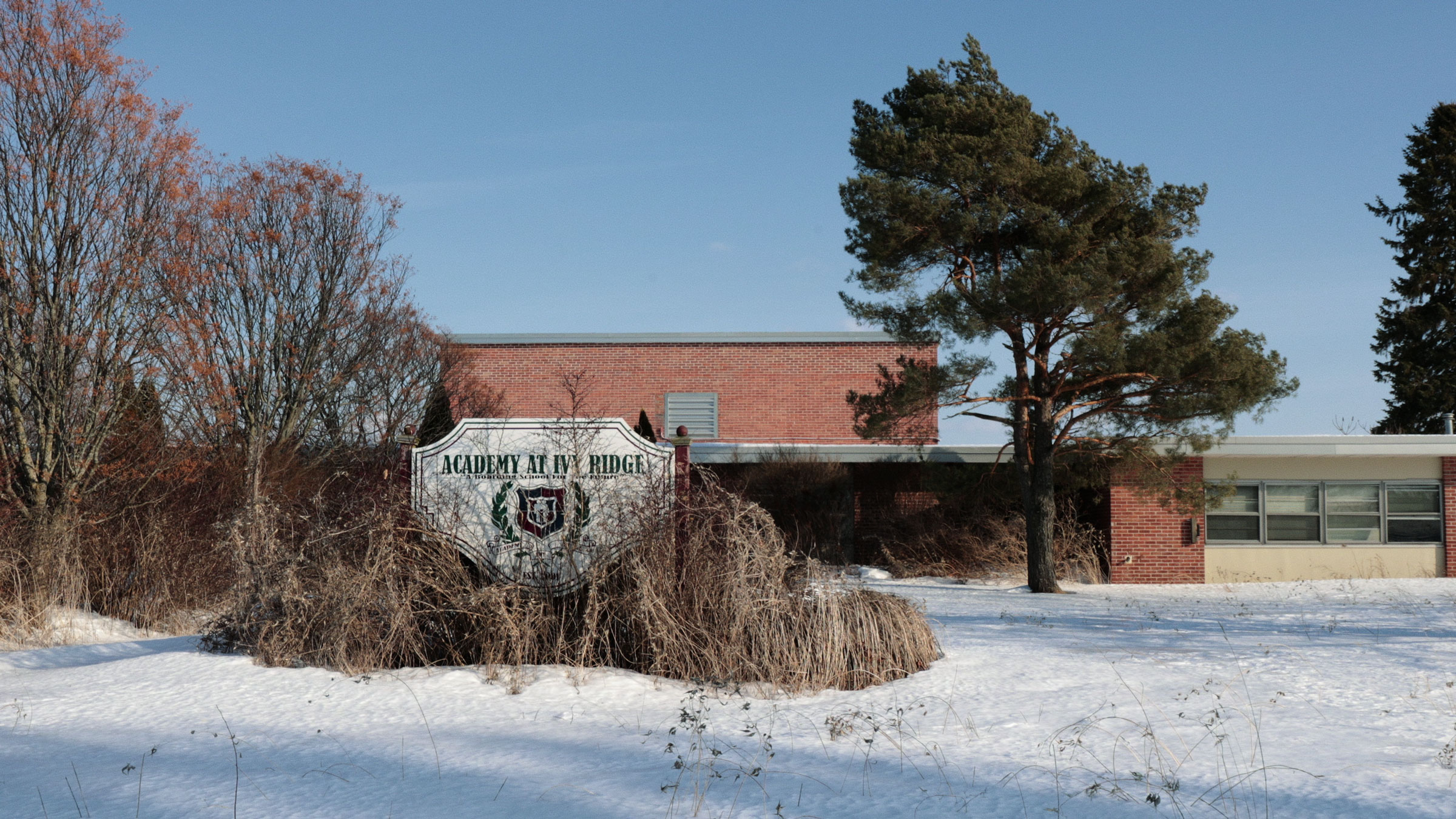No farting without permission.
No looking in the mirror.
No smiling.
These are some of the countless rules that teens had to follow at Academy at Ivy Ridge, a disciplinary boarding institution that operated in upstate N.Y. between 2001 and 2009. Marketed as a school that would help troubled teens, in reality, many Ivy Ridge attendees endured mental and physical abuse and were made to take part in cult-like activities.
Their stories come to light in the new documentary series, The Program: Cons, Cults, and Kidnapping, out March 5 on Netflix. Katherine Kubler, a survivor of Ivy Ridge, directs the three-episode series, returning with her former classmates to the defunct campus to unpack their horrific experiences.
“I made this series because there really was nothing out there to help explain what had happened to me to my friends and family to warn them about these places," Kubler says. "So now, that resource exists.”
The Program explores what happened at Ivy Ridge
The Program takes viewers right to the halls of the institution in rural Ogdensburg, N.Y. as Kubler and her classmates walk through Ivy Ridge. They visit the room where they spent hours on old computers doing online video game-style quizzes—the extent of their academic training. They say it wasn’t uncommon to see teens sleeping on mattresses on the floor of the hallways. A woman named Diana sits in an isolation room and describes how during a so-called intervention, she was forced to lie face down on the floor for hours.
Other forms of psychological abuse included requiring the teens keep bathroom stalls open while they relieved themselves, prohibiting them from speaking to one another or looking at each other, and penalizing them if they were caught looking out a window.
Since Ivy Ridge shut down in 2009, anyone has been able to walk into the abandoned building. While there, Kubler found an extensive paper trail, video footage, and eyewitness testimony literally lying in plain sight, including files on teens and security cameras footage of staffers flogging teens.

Uncovering the past
Kubler, who was forced to live at Ivy Ridge from March 25, 2004, to June 25, 2005, describes in The Program how a transport team representing the disciplinary school showed up in the middle of the day to her high school principal’s office, put her in handcuffs, and took her away. Her mother had died when she was only two, and as a teen she was drinking and acting out in response to her harsh stepmother.
Parents were encouraged to send children to schools like Ivy Ridge as a way to stop bad behavior. The documentary series shows marketing brochures that made it seem like a regular high school, with pictures of the kids swimming, dancing, and cheerleading. Survivors interviewed in the series say those photos were PR stunts, as most of the time they weren’t even allowed to go outside.
Institutions like Ivy Ridge claimed they would get teens better through therapeutic activities, but The Program shows that the abuse actually scarred them for life. The school also did not offer students a degree they could actually use. Ivy Ridge was not licensed, certified or registered with the New York State Department of Education, and the diplomas were not transferable to colleges.

In The Program, Kubler also explores the effects her time at Ivy Ridge has had on the rest of her life. She found it difficult to be close to her father after leaving the school, cutting off contact from time to time. Making the series ends up bringing them together in their first sit-down conversation in years in which he apologizes and says he never would have sent her to Ivy Ridge if he knew what was going on there. Her parents kept the letters that she exchanged with her father while at Ivy Ridge in which she described how sad she was, and he talked about how he had to send her away because he was afraid of going “soft” on her if she was home.
“These programs destroy families, and it's very hard, so I wanted [viewers] to see what it's done to my family,” Kubler says.
Returning to Ogdensburg for the series, Kubler bumped into a former Ivy Ridge staffer and invited her out to breakfast; the staffer says that she was just carrying out orders, but regretted not speaking up, in hindsight. In another scene, Kubler shows up at a karaoke night where a leader of Ivy Ridge’s parent company was performing. While she doesn’t introduce herself because she doesn’t want to give him a platform, she does get up and sings Blondie’s “One Way or Another” (“One way, or another, I'm gonna find ya / I'm gonna get ya, get ya, get ya, get ya”).

Ivy Ridge spotlights the troubled teen industry
The Program also puts Ivy Ridge into the larger context of the troubled teen industry, the hundreds of unregulated boarding institutions across the country that still exist, uncovering how even when those schools are shut down, they find ways to reopen under new names.
“This industry exists because there are not many good resources out there for families in a crisis, so we need to figure out alternate solutions,” Kubler says. “Ultimately the goal is to expose these places and to get this industry shut down.”
Speaking out usually leads to press coverage, which can in turn lead to investigations. Ivy Ridge shuttered following a spate of bad press and a NY Attorney General investigation. The most high-profile advocate of the troubled teen industry right now is Paris Hilton, who discussed enduring emotional and physical abuse at a Utah boarding institution in a 2020 documentary and has lobbied in D.C. in favor of the Stop Institutional Child Abuse Act. Hilton is inspiring others to speak out, but over the past two decades, the growth of social networks has enabled survivors to find fellow classmates and others who were forced to go to similar institutions.
Kubler hopes that her Netflix documentary will find other survivors of programs like Ivy Ridge and inspire them to speak out about their experiences. Teens labeled as troubled are usually seen as liars and manipulators, but with the series, “hopefully people will finally believe us,” she says.
More Must-Reads from TIME
- Cybersecurity Experts Are Sounding the Alarm on DOGE
- Meet the 2025 Women of the Year
- The Harsh Truth About Disability Inclusion
- Why Do More Young Adults Have Cancer?
- Colman Domingo Leads With Radical Love
- How to Get Better at Doing Things Alone
- Michelle Zauner Stares Down the Darkness
Write to Olivia B. Waxman at olivia.waxman@time.com